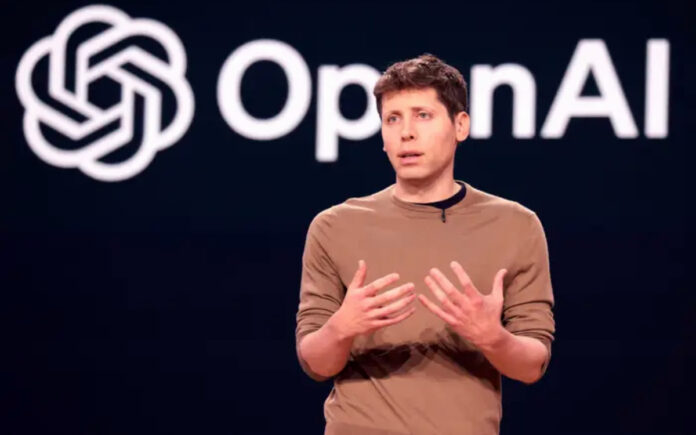San Francisco: OpenAI, the creator of ChatGPT, is developing a plan to restructure its core business into a for-profit benefit corporation, a move designed to eliminate non-profit board control and enhance the company’s appeal to investors, sources familiar with the situation informed, as reported by the international news agency Reuters. While the non-profit entity will persist and maintain a minority stake in the newly structured for-profit company, this shift marks a significant change in governance for one of the leading AI firms.
As part of the restructuring, CEO Sam Altman is set to receive equity for the first time in the for-profit company, which could be valued at $150 billion following these changes. Additionally, the company aims to lift the cap on investor returns, according to the sources, who requested anonymity to discuss private matters.
An OpenAI spokesperson commented, “We remain focused on building AI that benefits everyone, and we’re working with our board to ensure that we’re best positioned to succeed in our mission. The non-profit is core to our mission and will continue to exist.”
These proposed structural changes, initially reported by Reuters, underscore significant shifts occurring behind the scenes at OpenAI. The restructuring is still under negotiation with legal advisors and shareholders, and the timeline for completion remains uncertain.
This transition comes amid a wave of leadership changes within the startup. Mira Murati, OpenAI’s longtime chief technology officer, recently announced her departure, while Greg Brockman, the company’s president, is currently on leave.
Founded in 2015 as a non-profit AI research organization, OpenAI introduced the for-profit subsidiary OpenAI LP in 2019 to secure capital from Microsoft for its research endeavors. The company gained worldwide recognition with the launch of ChatGPT in late 2022, a generative AI application that produces human-like responses to text queries. ChatGPT has become one of the fastest-growing applications ever, boasting over 200 million weekly active users and triggering a global investment race in AI.
OpenAI’s valuation has surged from $14 billion in 2021 to an anticipated $150 billion in the ongoing convertible debt round, attracting investments from firms like Thrive Capital and Apple.
Also Read | OpenAI’s Technology Chief Mira Murati and Two Other Executives Depart
AI Safety Concerns
The original structure of OpenAI was designed to ensure the mission of developing “safe AGI that is broadly beneficial,” referring to artificial general intelligence that matches or surpasses human intelligence. This governance model gained prominence last November during a significant boardroom crisis when members of the non-profit board ousted Altman due to a communication breakdown and loss of trust. He was reinstated five days later, receiving overwhelming support from both employees and investors.
Since that time, OpenAI’s board has undergone changes, now comprising more technology executives, with Bret Taylor, former co-CEO of Salesforce, chairing the board. Any corporate adjustments will require approval from the nine-person non-profit board.
Also Read | Keffiyeh Controversy: Jhumpa Lahiri Declines Award from Noguchi Museum
The removal of non-profit control may allow OpenAI to operate more like a traditional startup, a shift generally welcomed by investors who have invested billions into the company. However, this development could raise concerns within the AI safety community regarding the lab’s ability to maintain adequate governance and accountability in its pursuit of AGI, particularly following the disbandment of its superalignment team, which focused on long-term AI risks, earlier this year.
Details regarding the extent of equity Altman will receive remain unclear. Altman, already a billionaire through various startup investments, has previously stated that he chose not to take an equity stake initially to ensure a majority of disinterested directors on the board. He has also expressed that he has sufficient wealth and continues to pursue this work out of passion.
The restructured OpenAI would align more closely with competitors like Anthropic and Elon Musk’s xAI, which are registered as benefit corporations, aiming to balance profit-making with social responsibility and sustainability.



